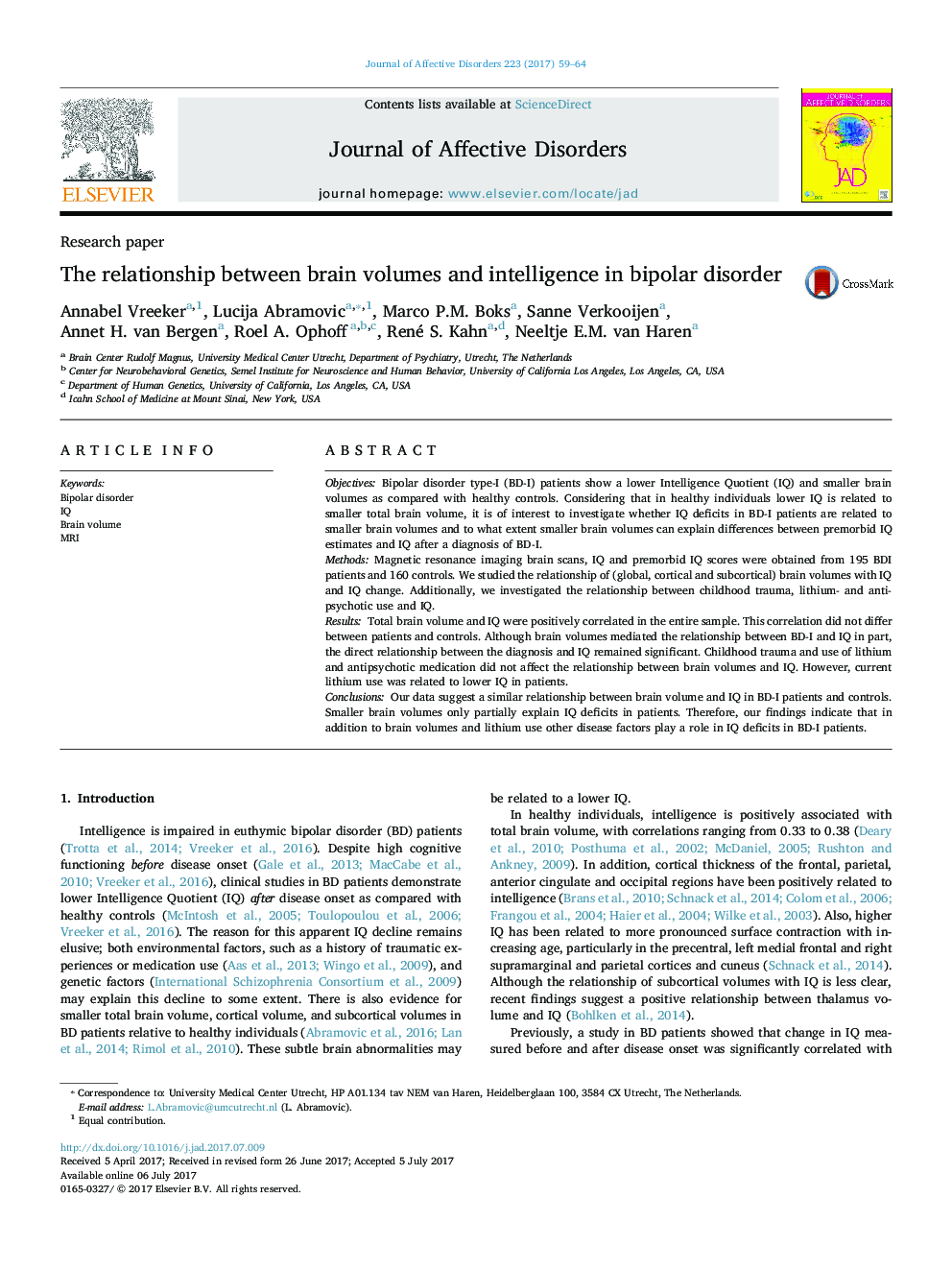| کد مقاله | کد نشریه | سال انتشار | مقاله انگلیسی | نسخه تمام متن |
|---|---|---|---|---|
| 5721792 | 1608102 | 2017 | 6 صفحه PDF | دانلود رایگان |
- No different correlation of brain volume and IQ between BD patients and controls.
- Brain volumes partly mediate the relationship between BD and IQ.
- Current lithium use is related to lower IQ in BD patients.
ObjectivesBipolar disorder type-I (BD-I) patients show a lower Intelligence Quotient (IQ) and smaller brain volumes as compared with healthy controls. Considering that in healthy individuals lower IQ is related to smaller total brain volume, it is of interest to investigate whether IQ deficits in BD-I patients are related to smaller brain volumes and to what extent smaller brain volumes can explain differences between premorbid IQ estimates and IQ after a diagnosis of BD-I.MethodsMagnetic resonance imaging brain scans, IQ and premorbid IQ scores were obtained from 195 BDI patients and 160 controls. We studied the relationship of (global, cortical and subcortical) brain volumes with IQ and IQ change. Additionally, we investigated the relationship between childhood trauma, lithium- and antipsychotic use and IQ.ResultsTotal brain volume and IQ were positively correlated in the entire sample. This correlation did not differ between patients and controls. Although brain volumes mediated the relationship between BD-I and IQ in part, the direct relationship between the diagnosis and IQ remained significant. Childhood trauma and use of lithium and antipsychotic medication did not affect the relationship between brain volumes and IQ. However, current lithium use was related to lower IQ in patients.ConclusionsOur data suggest a similar relationship between brain volume and IQ in BD-I patients and controls. Smaller brain volumes only partially explain IQ deficits in patients. Therefore, our findings indicate that in addition to brain volumes and lithium use other disease factors play a role in IQ deficits in BD-I patients.
Journal: Journal of Affective Disorders - Volume 223, 1 December 2017, Pages 59-64
